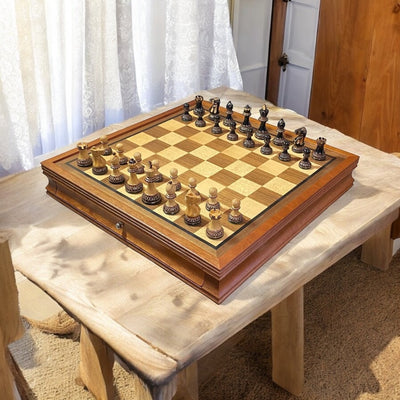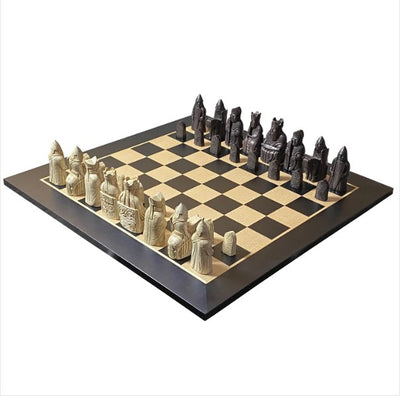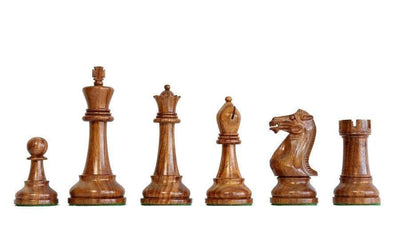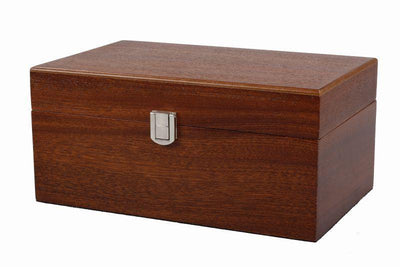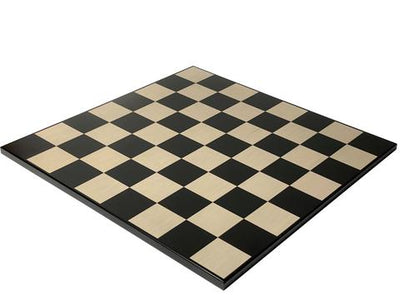5 Tips to Improve Your Chess Skills
5 Tips to Improve Your Chess Skills
This article is designed to give novice chess players a jumpstart in learning how to play chess. While practice is essential for any skill, the valuable lessons that you learn from them will help you to improve your game. These are five easy tips to help you become a great chess player.
1. Play, play, and then play again
When you're trying to improve your playing skill and understanding of the game, there is simply no substitute for getting your chessboard out and playing. Playing against yourself, or against friends and family is a great way to start, but we'd recommend, if you can, playing against somebody with a degree of skill.
Playing against someone who is better than you will help you learn how to play chess. Playing against someone who's also new to the game is fun, but it's not going to teach you much about strategies needed to leave you with the most chess pieces left at the end of the game.
A great way to learn chess is to go back and review every game once you have finished. This will help you to identify where you made mistakes. Recognizing where you gave the advantage to your opponent will make it less likely that you will repeat it next time, or even after that.
2. Do not try to learn everything at once!
There are many things you can learn about chess, as it has been played for centuries. Whilst the chess pieces stand in the same place on the chessboard at the beginning of every game, there are hundreds of different strategies and tricks to learn to become a good chess player. Start learning the basics of the game's strategies and tactics. Don't forget the important stuff.
While you are learning your moves, you will be able to learn some openings and endgames. You'll also learn how to recognize when the chess pieces on the chessboard are placed in a way that makes a draw more likely.
While we don't advocate that you ignore the more complicated stuff, we do recommend that you learn it as soon as you can. If you play tournament chess, it is important to know when to stop and save your energy.
3. Accept constructive criticism
You'll probably receive lots of praises and criticism about your game if you have a chess coach. It's important that you listen to constructive criticisms about your opponent's chess game and not shut down.
A coach will usually watch you play chess from the sidelines of the chessboard. They will be able to see every move you make and the bad ones. You can trust your chess partner to have lots of knowledge and will be able to share it with you.
There is no one who is a genius at the game at the start of the journey. One of the best ways to improve your chess skills is to be able to recognize what you are doing wrong.
4. Maximize Your Chess Pieces
At the outset, it can be easy to focus on the most useful and mobile of the chess pieces you have sitting in front of you. Great military generals have shown that no army or cavalry can win a war. The same holds true for chess. You must learn how to use every piece on the chessboard in order to be a great chess player.
As you play the game, you will learn how to position your chess pieces on the chessboard in better positions so they can be used in harmony. Collaboration is key to creating a more complex game. The more pieces you use in your attack on the Queen of your opponent, the stronger your attack will be.
5. Start Memorizing Games
Chess requires a lot of memory and is very cerebral. Your memory will improve the more you use it, so we recommend memorising not only your own games, but also famous games from the history of chess.
Regular practice will improve your memory and visualisation skills. You'll be able to recall exactly where the pieces were moved during the game. There have been many high-profile games in the past, and you can find a lot of videos and information online to assist you.
We recommend that you choose games from top players and world champions from the archive, and then watch carefully as they practice their craft. A good game to play while watching is to guess where these chess masters are going to move their chess pieces next. You'll get better at guessing right the more you do it!
How to become a good chess player
There are many things that go into becoming a great chess player, but you will soon notice a difference in your ability and understanding of the game. You are not alone in your quest to learn about chess. Even the top players continue to learn.
We are grateful for your interest in our blog and hope it has helped you to get started with the game of Kings.


